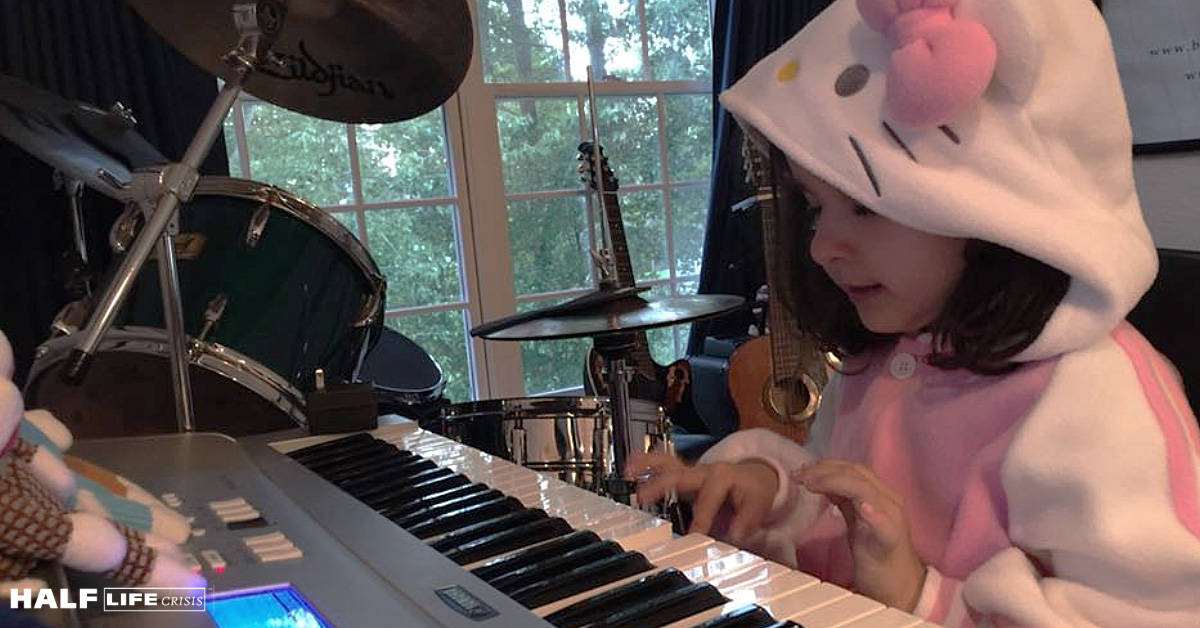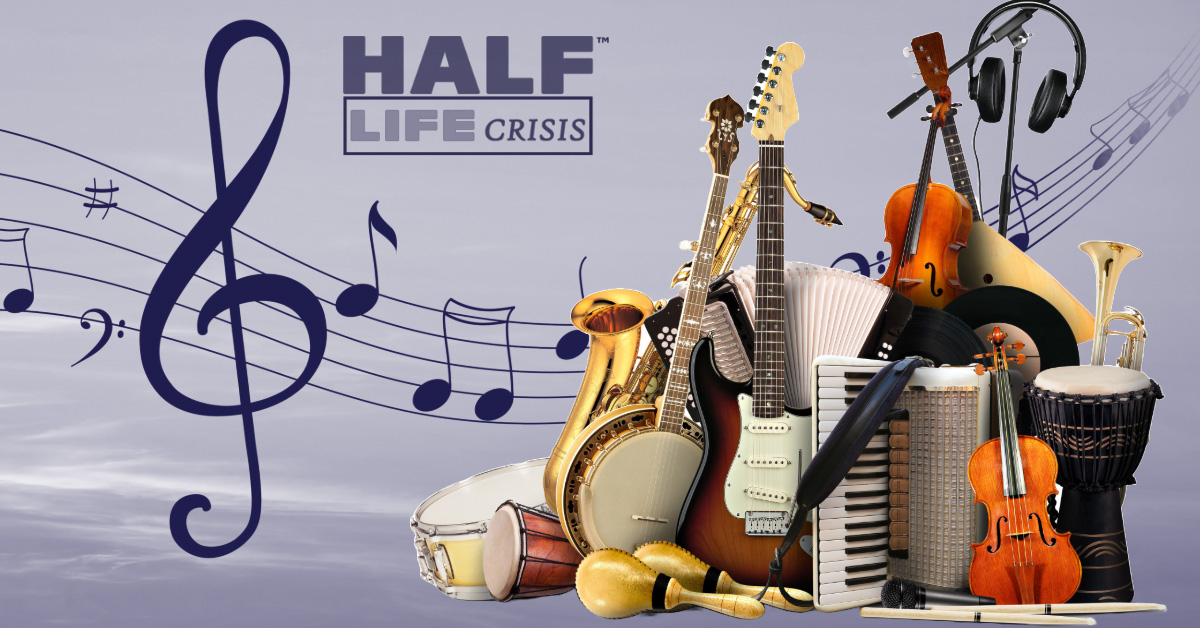Most people at some point want to learn to play a musical instrument. Sadly, many stop pursuing this goal soon after getting started. This is why.
How many times you’ve met that person who started trying to learn to play a musical instrument, but for whatever reason they gave up? This happens quite often. In-fact I was one of those people at some point in my life, even though I always loved music. Today, although I am not a professional, I consider myself a musician. And though I would never claim to be a prodigy, I know my way around the instruments I like to play. Also, one of my interests is collecting musical instruments. I’ll be making more articles about why I choose each one of my musical instruments and gear. I’m very selective about what I like, and why chose each. I’ll be happy to expand if you have any questions.
Why people quit their musical instrument?
There are countless reasons why people give up on their goal of learning to play a musical instrument. Especially after they gave it a go for a little while. Tough I cannot list every last reason, otherwise this short article would become a large book; I’ll talk to the top three reason I’ve heard, and I have personally experienced regarding the topic of giving up on a musical instrument.
#1 The instrument is fighting you.
You might like an instrument, that does not mean that it will like you back. Sorry, but I’ve had my heart broken too. It’s ok, every instrument is very unique it is not always one-size fits all. That’s why a lot of professional musicians will have a preferred instrument. The instrument will become an extension of the person’s expression.
If you buy a very cheap instrument because you “think” you might not want to pursue it, then do yourself a favor. Just pursue something else and spend the money in something you really want to do. Instead of collecting dust, the instrument could be in more welcoming hands elsewhere. The more expensive the instrument, the more attention to detail is has been put into it. And a lot of his attention to detail will be placed in the playability. If an instrument cannot hold tune, or has sharp edges, or it is out of whack in any way it will frustrate the crap out of you. Also, if you spend a bit more money in a better instrument, you’ll also be less inclined to put it to the side. A good instrument, you’ll find out… they are hard to put down. They will sound better, they will feel better, they will make you happy. They become an extension of you.
#2 Whomever is teaching you is a killjoy.
There are some lousy teachers out there. Even though they might be musically talented and know all the technical ins/outs of music theory, it might become super dry and mechanical. Though I can understand that approach, when I had a piano teacher who was super dry, I did not enjoy the lessons at all. I had to later re-learn my love for the piano.
When I have taught others to play, I always want them to have fun with the instrument. They will get introduced to music theory here and there as they learn how to manipulate the instrument. I like to start by familiarizing them with the instrument parts, what each thing does what, and why they are designed that way. Once they have this context everything else starts making more sense. To include the musical theory. And then, suddenly the instrument it becomes part of their own expression, and their expression continues to grow as they get more familiarized with how the instrument works. It is like creating a relationship.
#3 Playing the instrument has become a chore.
Music is art, and in my humble view – art should not be a chore. If it is, then it might lose that spark. Part of the expression on an instrument is how the musician feels when they are performing. Even if that is in a room all by themselves, or in front of a crowd. There are some musicians who are technically brilliant, yet their music sounds generic. Conversely, there are musicians who might not even have amazing chops, but their music is engaging and beautiful. I said it before, the music becomes an extension of you.
Quick story. I was in Tennessee about 22 years ago or so in a business trip, and one night there was this band playing… they were musically speaking flawless. The guitarist was technically very, very proficient. Yet he looked like he was hating every second. When I talked to him, he would tell me “that was just a job” – so he was not even feeling it. He would just play whatever they told him to play. He could very well perform on the spot anything you can imagine. But he was just not happy. And although all notes and tempo were correct, his performance just felt like a “recording” – if that makes sense.
On the opposite side of the spectrum, there was this guy who just knew a few chords and very simple melodic solos, but his dynamics and feeling were such that would give you goose bumps and can’t help but love every note.
Your chops will grow as you get more familiar with your instrument, just don’t compare yourself to any other musician, just be better than you were the day before. Again, the instrument will become an extension of your expression.
 © 2017 Marcelo Baqueroalvarez / HLC | Sammy Playing Keyboard
© 2017 Marcelo Baqueroalvarez / HLC | Sammy Playing Keyboard
Buying a Musical instrument – Advice to parents:
If your child is interested in learning to play an instrument, for the love of all that’s good and decent, do not get some cheap @$$ “beginner” instrument. It will only increase the change they will give up (and you’ll waste money). Those very cheap instruments are normally more “toys” than instruments. And unless your child really, really, really, really, really wants to pursue that passion, a cheap instrument will likely extinguish that passion before it can catch up to the point of skill development. When you spend a bit more money on an instrument, it will play better, it will sound better, it will feel better, and it will enhance your child’s skill level. And YES, it can very well be a used instrument. You’ll be surprised the amazing instruments you can find second hand for a much, much reduced price. Have an actual musician friend to help you find the right instrument for your child.
Sooner or later your child might outgrow their instrument, but as I said in reason #1, if the instrument is fighting him/her – the child might choose to stop fighting and pursue something else. Also, if they know that it is a cheap thing, there is a higher possibility they will take it for granted.
And no, I am not saying go out and purchase a very expensive instrument. But trust me there is a reason why awesome musicians have particular preference for a particular brand, or feel, or action… whatever it is, the instruments are meant to become an extension of our expression. If you forget anything I said, it is ok to wait and save for an adequate instrument. If you or your child really want to learn, you and they will treasure their first instrument forever. I still treasure my first guitars even though I have a bunch more professional level instrument. But hey, my first guitar will always be my first guitar. I’ll write an article about it. When you give your child their first instrument, make sure the instrument also has a story worth telling. It will make a huge difference. HLC

